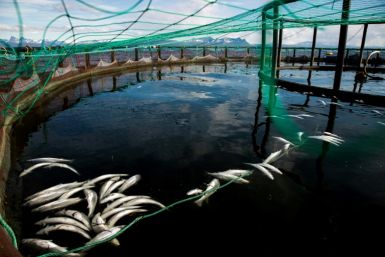Olympics Performance Boost for Australia: School Program Integration, More Flow of Funds
With a total haul of 22 medals as of Tuesday this week, Australia may well end up as one of the top finishers in the soon-to-be concluded London 2012 Olympics.
But the total numbers only represent two gold medals so far, clearly indicating that this year's Olympics spectacle would be recorded as the worst showing yet for Aussie athletes.
Australian Olympic Committee (AOC) president John Coates has admitted that the country largely failed on its goal to at least barge in to the Top Five at the Summer Games, a debacle that he attributed to the lack of foresight in national sports development on the part of the federal government.
Mr Coates said the glaring proof of such an oversight is the absence of integrated sports program in Australian schools, which would have allowed sports officials to identify young talents who could be harnessed early for future deployment in international sports competitions like the Olympics.
Similar programs were deemed effective in countries such as China, which is tussling it out with the United States in the close medal race to the top.
As concurrent chair of the Australian Olympic Foundation (AOF), which provides significant financing to Australia's Olympic campaigns, Mr Coates is convinced that apart from grassroots development techniques more funding boost from Canberra is required despite the estimated $170 spending budget allocated by federal authorities for use of the country's top performing athletes.
He was reported November last year sending out warnings that Australia cannot expect to stay on top in global sports spectacle with limited cash inflows.
Specifically, according to media reports, Mr Coates predicted that Australia will not make the Top Five cut in London, which likely will materialise at the end of the ongoing games.
But a Fairfax report has indicated that AOC still enjoys a balance of no less than $100 million, basing, the media firm said, on the latest accounting figures provided by the national Olympic body.
Notwithstanding the funds at its disposal, Australian headliners at London missed their targets and getting specific attention is the national swimming team, which has been previously touted as the major medal hauling tool of the country.
Yet the expectations fell short as signified in the medal tally, which Swimming Australia chief David Urquhart blamed on false estimates, both on the extreme ends.
"I think we underestimated the rest of the world in coming in here with our expectations. And we have to make sure now that whatever the level of the bar is that the rest of the world are setting, we've got to get up there," Mr Urquhart told ABC on Tuesday.
He confirmed that a thorough review will be conducted in the immediate aftermath of the London Games.
The basic question officials would want to answer is: "What went wrong?"
Former Olympic gold medallist Susie O'Neill was critical of what she perceived was the non-solid work ethics displayed by current members making up the Australian swimming team.
She called for a review on the level of commitments on the part of the team members without "personally criticising members of the team," just so to dispel the notion that Australia is resorting to witch-hunting to solve its problem.
"We want to make sure they're prepared 100 per cent physically and mentally, you know, to the best of their ability," Ms O'Neill was reported by ABC as saying.
Yet for swimming team member Brenton Rickard, if Australia must scrutinise on its failure "we need to be looking at all aspects of the sport, from our high performance to participation to what's going on at, you know, upper management level."
Mr Rickard told ABC that the swimming crew was not distracted by infighting or excessive partying as suggested in earlier reports.
Mr Urquhart echoed the earlier sentiments voiced by Mr Coates - other nations performed much better because they're willing to spend on their athletes.
The Swimming Australia chief cited the examples of the stellar showing flashed by China's swimming team, which he noted had benefitted from the expertise and services of Australian coachers at the Asian economic powerhouse's employ.
It would have been ideal for these swimming trainers and tacticians to stay home and teach instead home-grown talents but Mr Urquhart conceded "we haven't got that (much) money," to lure these coaches back.





